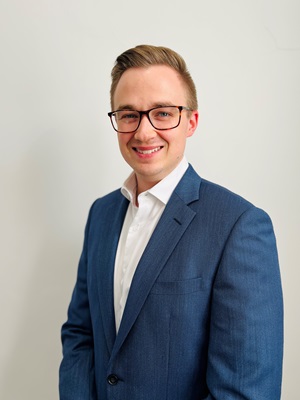2024 | Volume 25 | Issue 4

Nicholas Candy
Dr Nicholas Candy, a Neurosurgery Trainee and recipient of the 2023 Roy and Marjory Edwards Research Scholarship from the Royal Australasian College of Surgeons (RACS), highlights the invaluable support provided by the scholarship.
"Taking a year off from my training in 2023 to continue working on my PhD posed some significant financial constraints. This scholarship was truly valuable in allowing me to undertake that time away from training," he says.
Dr Candy focused his PhD on the pituitary gland membrane and potential targets for fluorescence-guided surgery, aiming to enhance endocrine outcomes for surgery patients. His research—part of four projects within his PhD—explored membrane-based proteins expressed differently between the pituitary gland and non-functioning pituitary tumours.
Unexpectedly, Dr Candy's research identified more than 6500 proteins, with more than 2000 showing significant differential expression between pituitary glands and tumours. The research highlights the potential of these differentially expressed proteins as molecular targets for fluorescence-guided surgery.
"The next phase aims to narrow down this broad pool to a select few proteins,” he says.
Dr Candy’s findings show a promising area for continued research, emphasising the need to refine and identify specific proteins for practical application in fluorescence-guided surgery.
His interest in in this research topic stemmed from discussions with mentors who highlighted the challenges surgeons face in distinguishing between the pituitary gland and tumours during surgery.
Dr Candy's research more broadly uncovered a steep learning curve with endoscopic pituitary surgery. Surgeons rapidly gain experience, but the learning curve never plateaus even after years of experience.
“We found that even experienced surgeons refine their techniques over decades, highlighting the evolving nature of surgical training,” he says.
His goal to shorten this learning curve was the focus of his PhD. Dr Candy believes that a way to achieve this is by improving tumour visibility for enhanced surgical precision or highlighting the pituitary gland—enabling its preservation and potentially improving endocrine outcomes.
Dr Candy completed his PhD within a year, much earlier than anticipated. He is now back in training at the Royal Adelaide Hospital and the Women’s and Children’s Hospital in Adelaide.
Dr Candy, who grew up in Brisbane, says he wanted to become a surgeon when he was in Year 10. While he didn't know the specific type then, he later found enjoyment in the rewarding aspects of surgery.
While at medical school at James Cook University in Townsville, Dr Candy completed a placement at a private neurosurgery practice, where he observed operations and closely collaborated with neurosurgeons.
“It was inspiring. That placement was pivotal. Afterwards, I did everything to orient myself toward a career in neurosurgery,” he says.
During his final year as a medical student, Dr Candy undertook a rotation with the Department of Neurosurgery at Cambridge University in the UK. He completed a master's degree during his internship year and proceeded to specialise in neurosurgery, with a strong interest in integrating research into his career.
Dr Candy is passionate about pursuing a career as a surgeon-scientist in skull base surgery.
“Being able to complete this PhD will hopefully give me a stronger academic grounding and enable me to pursue further training experiences overseas, and ultimately bring back enhanced skills and knowledge to Australia," Dr Candy says.
Outside of work, Dr Candy continues to focus on publishing his PhD and working full-time. “Sometimes on weekends when I am not on call, I get to spend time with my family, which is nice, but it's quite busy at the moment.”